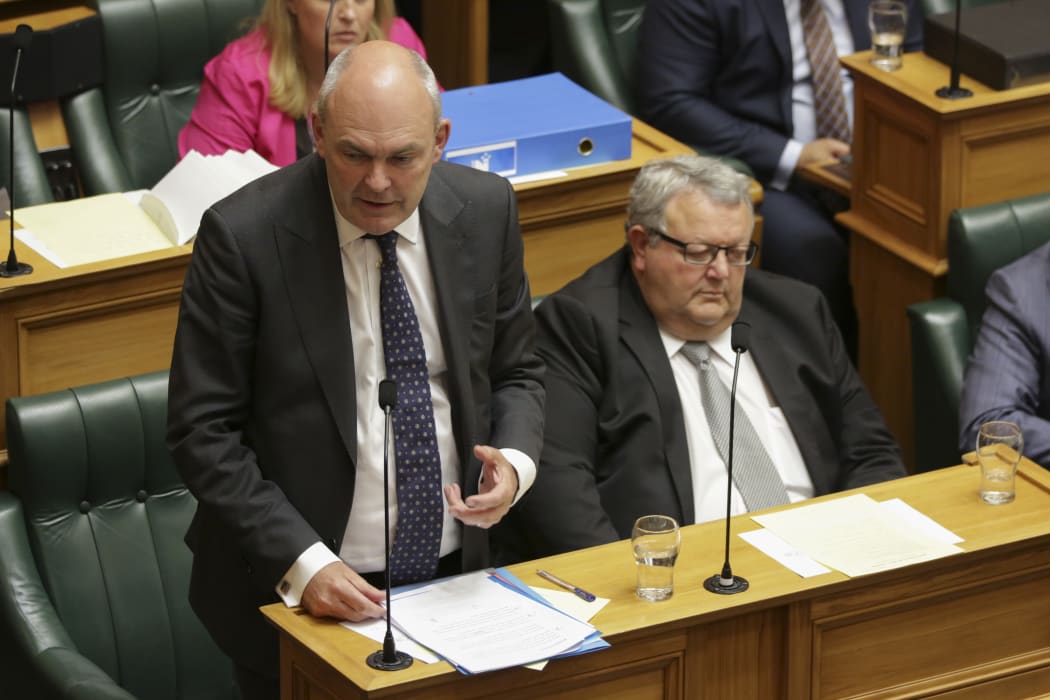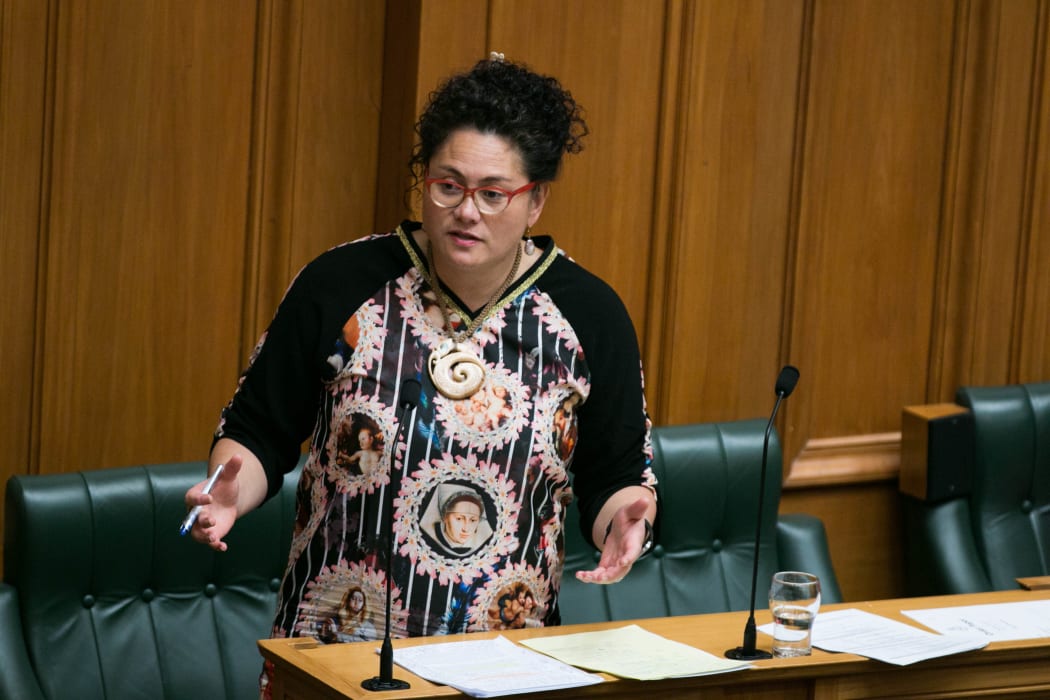It’s eight weeks into the new Government’s term and the Opposition is taking the chance to point the finger at what has and hasn’t been done so far.

Photo: RNZ / Richard Tindiller
The Government’s “mini-budget” will be introduced to the House this week and during Question Time on Wednesday the Opposition challenged the Government on its plans; particularly on tax and education.
The previous government, led by National, introduced tax cuts that would take effect from April 2018 but the Labour-led Government will scrap those and bring in its own Families Package instead.
Technically the tax cuts haven’t been cancelled yet so National’s Steven Joyce asked the Finance Minister Grant Robertson if it is his intention to deny each superannuitant couple $681 in superannuation payments that they would otherwise receive under the law as it is now.
“It is this Government's intention to repeal the tax cuts that have been legislated but have not come into force, which would have led to the changes in New Zealand super payments.” said Mr Robertson.
“But I have good news for the member: the Government's Winter Energy Payment, which is part of the Families Package, will provide a significant boost to superannuitants' incomes, and the details of that will be announced tomorrow.”

Finance Minister Grant Robertson gives the Half Year Economic and Fiscal Update. Photo: RNZ / Rebekah Parsons-King
The tit for tat didn't end with Question time. On Wednesdays Question Time is followed by the General Debate in which 12 MPs have five minutes to talk on any topic they desire.
It’s common for parties to ask their members to focus on a particular topic for the general debate and throughout the House, the popular moot was education.
In 2010 the National-led Government introduced National Standards for reporting on reading, writing and maths but like the tax cuts, these have been dropped with schools not required to report this year’s results.
National MP Tim MacIndoe said some MPs were celebrating the “demise of national standards” but there is a reason they were brought in.
“Parents were not receiving helpful reports in sufficient time to enable them to take remedial action when their children were falling behind in literacy and numeracy,” he said.
“Those are the foundation blocks for a good education, and to get rid of national standards, without having anything in place, is utterly irresponsible.”
In the same year the National Standards were introduced a petition was presented to the House opposing the standards.
“We had teachers, we had the New Zealand Principals' Federation, and we had the Post Primary Teachers Association (PPTA) who said that national standards were fundamentally flawed, they were confusing, and they were unworkable,” said Labour MP Louisa Wall.

Labour MP Louisa Wall Photo: VNP / Daniela Maoate-Cox
“They had no confidence in them. They were untried, untested, and they labelled children as failures, and what I really want highlight is that the workload for teachers was going to be awful. So, from 2010 to today, can I say that national standards are gone by Christmas.”
The House will sit under urgency on Thursday and Friday to consider the Government’s mini-budget legislation.


